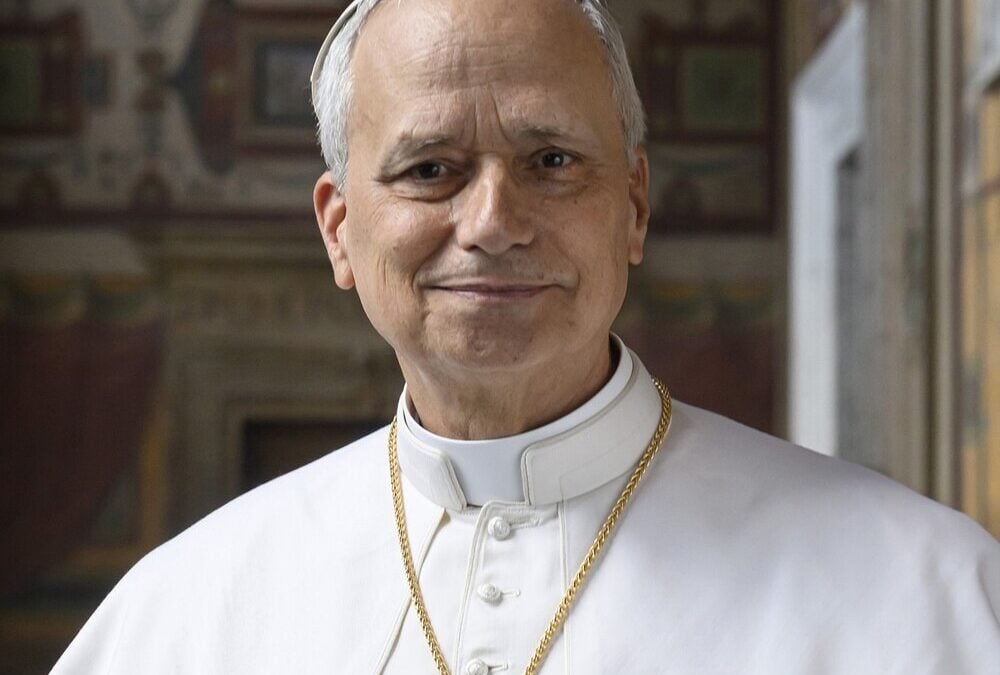The sacrament of confession, also known as reconciliation or penance, is one of the seven sacraments instituted by Jesus Christ for the Catholic Church. This sacrament allows the faithful to receive God’s forgiveness for sins committed after baptism. Through confession, believers reconcile not only with God, but also with the ecclesial community. The sacrament of confession is, therefore, an act of love and mercy, where the penitent expresses their repentance and receives sacramental absolution. For confession to be valid and fruitful, it is essential to conduct a deep and sincere examination of conscience.
You can use the Catholic Mass Times app to find the nearest Catholic church with Mass, Confession, and Adoration schedules. It will surely help you! Download it now.
Explanation of the Sacrament
Confession is a sacrament of spiritual healing. According to the Catechism of the Catholic Church, “those who approach the sacrament of penance obtain from God’s mercy the forgiveness of sins committed against Him and, at the same time, are reconciled with the Church, which they offended by their sins and which cooperates in their conversion by charity, example and prayer” (CCC 1422). This sacrament is based on the mission entrusted by Christ to his apostles: “Receive the Holy Spirit. Whose sins you forgive, they are forgiven; whose sins you retain, they are retained” (John 20:22-23).
Saint John Paul II, in his apostolic exhortation *Reconciliatio et Paenitentia*, emphasizes the importance of this sacrament by saying: “The sacrament of Penance is the ordinary means of reconciliation of the faithful with God and with the Church, except in the case of death, when reconciliation can be achieved by other means” (Reconciliatio et Paenitentia, 31).
To receive the sacrament of confession properly, several essential steps are required. The first is the examination of conscience. This step involves a deep and honest reflection on our actions, thoughts, and omissions to identify the sins committed. The examination of conscience should be thorough and sincere, helping the penitent recognize areas of their life that need amendment.
Then, the penitent must manifest true repentance and purpose of amendment. This repentance is not just a feeling of sadness for having sinned, but a firm resolution to change the behaviors that led to sin and to avoid sin in the future. Repentance must be genuine, with a sincere desire for reconciliation with God and personal transformation.
The next step is the confession of sins to the priest. During confession, the penitent must express all their mortal sins clearly and completely, without omitting anything out of shame or fear. Venial sins can also be confessed to receive additional grace, although they are not mandatory for the validity of the sacrament.
Finally, the priest imposes a penance and grants sacramental absolution. Penance is an action that the penitent must perform as a sign of his desire for reparation and his commitment to a new life. The absolution, granted by the priest in the name of Christ, removes the confessed sins and restores divine grace in the soul of the penitent.
Confession and the Bible
The practice of confession has its roots in biblical teachings. In the Gospel according to John (20:22-23), Jesus says to his apostles: “Receive the Holy Spirit. Whose sins you forgive, they are forgiven; whose sins you retain, they are retained.” This authority given to the apostles has been transmitted through the centuries to the priests of the Catholic Church. Confession is, therefore, a continuation of Christ’s redemptive mission, administered through His ordained ministers.
St. John Paul II also underlines the biblical importance of the sacrament in his apostolic letter *Misericordia Dei*: “Individual and integral confession of sins and absolution remains the only ordinary way by which the faithful are reconciled with God and the Church, unless a physical or moral impossibility dispenses from such confession” (*Misericordia Dei*, 3).
Examination of Conscience

An examination of conscience is a process of introspection and personal reflection that allows believers to deeply evaluate their actions, thoughts, and omissions in light of God’s commandments and the teachings of the Catholic Church. This spiritual exercise is essential to adequately prepare for the sacrament of confession, as it helps identify sins committed and recognize areas of life that need amendment.
To conduct an effective examination of conscience, it is necessary to seek a quiet environment and dedicate time to reflection. This process involves reviewing the Ten Commandments, the teachings of Jesus and the directives of the Church, sincerely questioning whether one has lived in accordance with them. Questions such as “Have I put God first in my life?”, “Have I been honest and fair in my relationships with others?”, and “Have I avoided situations that lead to sin?” are fundamental in this self-analysis.
Additionally, an examination of conscience invites believers to reflect on their interpersonal relationships, their participation in community life, and their commitment to Christian values. It is a moment to recognize not only sins of commission (negative actions performed), but also sins of omission (good actions that were left undone).
The examination of conscience should be a regular practice in the believer’s life, not only before confession but also as part of their daily spiritual life. This habit of continuous self-evaluation helps to remain aware of one’s weaknesses and strengths, fostering constant growth in faith and virtue. Furthermore, it allows the faithful to live more consciously and aligned with Christian values, promoting a more intimate and sincere relationship with God.
Theology of Reconciliation
The theology of reconciliation is based on the doctrine of God’s mercy and love, who desires the salvation and conversion of every human being. The sacrament of confession is a means instituted by Christ to grant forgiveness for sins committed after baptism. According to the Catechism of the Catholic Church, “Those who approach the sacrament of Penance obtain pardon from God’s mercy for the offense committed against him, and are, at the same time, reconciled with the Church which they have wounded by their sins” (CCC 1422).
This reconciliation not only restores lost grace, but also strengthens the penitent to resist future temptations and live in deeper communion with God and the Church.
Effects of the Sacrament of Confession
The sacrament of confession offers multiple beneficial effects, both spiritual and psychological. Spiritually, it provides forgiveness of sins and reconciliation with God, restoring sanctifying grace in the penitent’s soul. According to the Catechism of the Catholic Church, “he who confesses his sins with repentance and receives absolution from the priest is reconciled with God and the Church” (CCC 1468).
Psychologically, the act of confessing can alleviate the burden of guilt, offer inner peace, and promote a sense of personal renewal. Confession also fosters a constant examination of conscience, helping the individual grow in virtue and holiness.
The Role of the Priest in Confession
The priest plays a crucial role in the sacrament of confession as a representative of Christ and the Church. He is called to listen with compassion, offer spiritual counsel and grant absolution in the name of Christ. In addition to being a confessor, the priest acts as a guide and counselor, helping the penitent to discern his moral and spiritual life, and encouraging him to lead a life of conversion and holiness. The Catechism of the Catholic Church states that “the priest is the sign and the instrument of God’s merciful love for the sinner” (CCC 1465).
Confession is intrinsically linked to the sacramental life of the Church. By regularly receiving the sacrament of reconciliation, the faithful prepare themselves to participate more fully in the Eucharist and other sacraments. Frequent confession helps maintain sanctifying grace, strengthening the relationship with God and promoting a life of virtue and holiness. This cycle of receiving grace and reconciling again is essential for spiritual growth and active Christian life. The Catechism of the Catholic Church states that “the Eucharist and Penance are the two sacraments of healing and resurrection of the Christian life” (CCC 1446).
Adequate preparation is essential for a fruitful confession. This includes a thorough examination of conscience, prayer, and reflection on one’s own actions and omissions. The Church offers various guides and resources to assist the faithful in this process, ensuring that all aspects of the moral life are addressed. Preparation also involves an act of sincere contrition and the firm resolution not to sin again, essential elements for receiving absolution with a truly repentant heart.
According to the Catechism of the Catholic Church, “Contrition is ‘sorrow of the soul and detestation for the sin committed, together with the resolution not to sin again'” (CCC 1451).
Confession and Christian Community
Confession not only has a personal impact, but also strengthens the Christian community. Each act of reconciliation contributes to the unity and holiness of the Church, fostering an environment of love and forgiveness. When individuals are reconciled with God, they are also reconciled with the community, restoring relationships and promoting peace.
Public confession of sins and communal penance in certain contexts emphasize the collective nature of sin and grace. The Catechism of the Catholic Church affirms that “reconciliation with the Church is inseparable from reconciliation with God” (CCC 1445).
Confession in the Bible
The Bible offers numerous references that support the practice of confession. In the Old Testament, repentance and forgiveness are recurring themes, as in Psalm 51, where King David expresses his repentance for his sins.
In the New Testament, Jesus gives the apostles the power to forgive sins (John 20:23), thus establishing the basis for the sacrament of reconciliation in the Church. These biblical passages underline the importance of repentance and divine mercy in the life of the believer. The Catechism of the Catholic Church affirms that “Jesus has entrusted the ministry of reconciliation to his Church” (CCC 1442).
Challenges and Obstacles in Confession
Many people face challenges and obstacles when approaching the sacrament of confession, such as fear, shame, or lack of understanding. These impediments can cause the faithful to avoid confession, depriving them of the grace and forgiveness it offers. It is essential to address these challenges through education, sensitive pastoral care, and community support. Overcoming fear and shame allows penitents to experience the liberation and peace that come from confession.
The sacrament of confession is an essential practice for the spiritual life of Catholics. Through a sincere and thorough examination of conscience, the faithful can adequately prepare to receive the grace of reconciliation. This process not only facilitates the forgiveness of sins, but also promotes ongoing conversion and growth in holiness. Following the teachings of the Church and the examples of figures such as Saint John Paul II, Catholics can find in confession a path towards a fuller life in communion with God and the community.
Examination of conscience for young people
1. You shall love God above all things…
– Do I believe all that God has revealed and that the Catholic Church teaches us? Have I doubted or denied the truths of the Catholic faith? Do I give testimony of my faith among my friends?
– Do I do with reluctance the things that refer to God? Do I pray frequently and attentively? Do I thank God for all the good things he has given me?
– Have I unworthily approached to receive any sacrament? Have I kept silent out of shame about any mortal sin in previous confessions?
2. And your neighbor as yourself…
– Do I show respect and affection to my parents? Do I obey them promptly and cheerfully? Do I collaborate in household chores? Do I set a good example to my brothers and sisters and help them in their needs? Do I laugh with them or insult them?
– Respect for teachers and authorities?
– Do I respect my life and the lives of others? Have I assaulted people or been involved in fights? Do I care for life, including that of the unborn?
3. Other aspects of daily life…
– Have I drank or eaten to excess, been drunk or taken drugs?
– Have I taken things that are not mine? Did I return them?
– Am I generous, and do I put my things at the service of others, or am I overly attached to them? Do I complain when I don’t have what I want or lack some comfort?
1. You shall love God above all things…
– Do I believe all that God has revealed and that the Catholic Church teaches us? Have I doubted or denied the truths of the Catholic faith? Do I give testimony of my faith among my friends?
– Do I do with reluctance the things that refer to God? Do I pray frequently and attentively? Do I thank God for all the good things he has given me?
– Have I unworthily approached to receive any sacrament? Have I kept silent out of shame about any mortal sin in previous confessions?
2. And your neighbor as yourself…
– Do I show respect and affection to my parents? Do I obey them promptly and cheerfully? Do I collaborate in household chores? Do I set a good example to my brothers and sisters and help them in their needs? Do I laugh with them or insult them?
– Respect for teachers and authorities?
– Do I respect my life and the lives of others? Have I assaulted people or been involved in fights? Do I care for life, including that of the unborn?
3. Other aspects of daily life…
– Have I drank or eaten to excess, been drunk or taken drugs?
– Have I taken things that are not mine? Did I return them?
– Am I generous, and do I put my things at the service of others, or am I overly attached to them? Do I complain when I don’t have what I want or lack some comfort?
Examination of Conscience: A Practical Guide
First Commandment: Thou shalt love God above all things.
– Have I doubted the existence of God or his love for me?
– Have I put something or someone above God in my life?
– Have I fulfilled my religious duties, such as attending Sunday Mass and praying daily?
– Have I relied on superstitions, fortune telling, horoscopes or esoteric practices?
Second Commandment: Thou shalt not take God’s name in vain.
– Have I used the name of God, Jesus, the Virgin Mary or the saints in vain or in a disrespectful way?
– Have I made false promises or oaths?
– Have I blasphemed or spoken irreverently of sacred things?
Third Commandment: Thou shalt hallow the feast days
– Have I missed Mass on Sundays or Holy Days of Obligation without a serious reason?
– Have I observed the times of prayer and reflection in my daily life? reflection in my daily life?
– Have I devoted time to rest and family on holidays?
Fourth Commandment: Honor your father and mother.
– Have I disobeyed my parents or disrespected them?
– Have I helped with household chores and shown gratitude for your efforts?
– Have I maintained good relations with my siblings and other family members?
Fifth Commandment: Thou shalt not kill
– Have I caused physical or emotional harm to others by my actions or words?
– Have I fostered peace and reconciliation in my relationships?
– Have I shown respect for life from conception to natural death?
Sixth Commandment: Thou shalt not commit impure acts
– Have I maintained purity in my thoughts, words and actions?
– Have I avoided pornographic content and situations that incite lust?
– Have I respected the dignity and integrity of others in my relationships?
Seventh Commandment: Thou shalt not steal
– Have I taken something that does not belong to me?
– Have I returned what I have borrowed or compensated for what I have damaged?
– Have I been generous and honest in my financial interactions?
Eighth Commandment: Thou shalt not bear false witness or lie.
– Have I told lies or distorted the truth?
– Have I damaged the reputation of others with gossip or slander?
– Have I been honest and transparent in my communications?
Ninth Commandment: Thou shalt not consent to impure thoughts and desires.
– Have I struggled with impure thoughts and desires?
– Have I kept purity in my intentions and actions?
– Have I promoted chastity and respect in my relationships?
Tenth Commandment: Thou shalt not covet the goods of others.
– Have I envied others for what they have or for their achievements?
– Have I cultivated an attitude of gratitude for what I own?
– Have I worked to overcome greed and avarice in my life?
If you are young and seeking to deepen your spiritual life, the examination of conscience is an excellent tool to reflect on your actions and draw closer to God. This exercise will help you grow in your faith and improve in your Christian journey.
Use the Catholic Mass Times app to find the schedules of a nearby Catholic church and attend today! Download it now.
How can the examination of conscience help me grow in my spiritual life?
The examination of conscience helps you recognize your faults, improve your relationship with God, and strengthen your will to avoid sin. By doing it sincerely, you grow in humility, learn from your mistakes, and draw closer to God’s grace, allowing Him to work in your life.
Is it necessary to do an examination of conscience before each confession?
Yes, it is essential. The examination of conscience helps you remember your sins and confess them sincerely. Additionally, it allows you to prepare spiritually to receive God’s forgiveness with a truly repentant heart and a willingness to improve.
What resources can help me do a better examination of conscience?
You can use guides based on the Ten Commandments, Catholic mobile apps, confession preparation booklets, and meditations on God’s mercy. It is also helpful to ask the Holy Spirit to enlighten you in this process.
How often is it recommended to do an examination of conscience?
It is recommended to do it daily to evaluate your spiritual life and correct small errors. Additionally, it is essential to do it before each confession to remember the sins committed and confess them clearly and sincerely.
How can I overcome shame or fear when doing an examination of conscience?
Remember that God is love and mercy. Do not be afraid to recognize your mistakes, because the examination of conscience is not meant to condemn you, but to help you grow. Moreover, the priest in confession acts in the name of Christ and is there to guide you with compassion.











